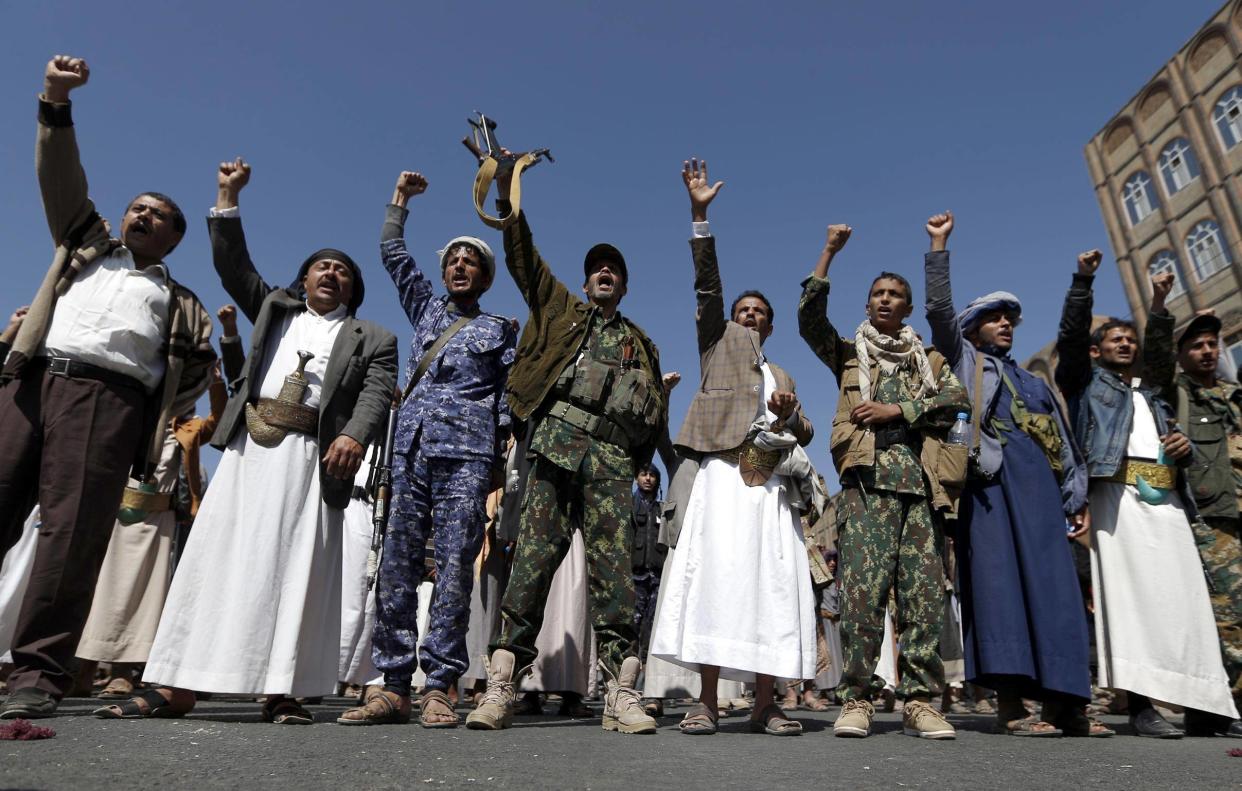Saudi Arabia and Iran are jostling for control over the Middle East – and it could turn into all-out war

There used to saying in the Middle East: “If a dog barks in the Middle East, British intelligence is behind it.” Replace the word “British” with “American”, and we think that’s still true.
But it isn’t. There were many casualties in the wars of Iraq, Afghanistan, Libya and Syria. One of them was the myth of Western omnipotence.
The greatest threat to world peace coming out of the Middle East now is not terrorism, but the danger of a wider Sunni-Shia religious conflict into which the great powers are dragged.
The radicalisation of Sunni Islam, funded from Saudi Arabia and the Gulf elements, is not any longer targeted on us in the West. Its target has changed from the Great Satan in Washington, DC to the Great Heretic in Tehran.
The attacks on our cities are not the real war, but collateral damage in a wider conflict.
This is not to diminish the threat to us here in London, or to suggest that we should not have been taking this seriously. The collateral dead are no less dead – as the innocents of Yemen, Iraq and Syria know so miserably well.
The casualties of the bombing outrages in Western cities, and the maimed and injured from the indiscriminate bombing of crowded Sanaa suburbs, are victims of the same war: the struggle between Sunni and Shia, which now stands on the edge of open conflict.
This is not really about religion, any more than the wars of religion of the 17th century, or the conflict in Northern Ireland, or the bloodshed in Bosnia. In almost all great so-called religious conflicts, what lies behind the shouting of the clerics is a contest between the power of nations.
This one is, in reality, a contest for dominance in the Middle East between Riyadh and Tehran.
And it’s been a long time coming. It has been building up strength, followers and causes through proxy wars in Iraq and Syria, proxy insurgencies in Mali, Libya and Yemen and proxy terrorist outrages in major Western capitals.
So why should this bother us in Britain? Haven’t we got enough on our plate, fighting our own battle with the EU? Is this not just another far-away country of which we know little, to adapt Chamberlain’s infamous phrase?
No, it is definitely not.
A regional conflict between Riyadh and Tehran, fired up by religious contention and supported by Russia on one side and the West on the other, poses a threat to world peace at least as great as North Korea – especially if, as seems almost certain, Israel becomes involved.
Mao Tse Tung famously called the two great World Wars of the last century “The European Civil Wars”. It is not an inaccurate description, for it reminds us that regional conflicts can have global consequences.
If that does not strike a shiver down your backbone, then you have not spent enough time studying history.
There is much about the piles of tinder scattered around the Middle East today which remind me of the Balkans in 1914.
So what should the policy of the Western nations be to the impending danger? The answer is scrupulously not to take sides.
We should have good relations with countries across the divide, and treat them exactly the same.
If they sponsor terrorism, we should ruthlessly expose them, rather than turn a blind eye for short-term convenience.
If they engage in proxy conflicts, we should not throw fuel onto the fire by supporting one side against another – above all with weapons.
If they commit war crimes, we should condemn this even-handedly. We should strive constantly to encourage dialogue between them.
We should avoid any step in which we in the West supports one side (the Sunnis) and Russia supports the other (the Shias). This is the greatest danger and we are very, very close to it.
Which brings us to Britain, Saudi Arabia and Yemen. From a moral point of view, Britain’s support of Saudi Arabia’s actions in Yemen is as foolish as it is reprehensible.
It is very clear that the Saudi bombing of civilians and the use of starvation as a weapon of war are illegal under international law. Britain’s silence on these war crimes is thunderous and shaming. The fact that we are supplying arms to Saudi Arabia is even more so.
The Government tells us that no British weapons are being used. I know a little about the temptations and confusions of war and I simply do not believe this.
The Government should announce an immediate suspension of arms sales to Riyadh, until their blockade of aid supplies is lifted and their indiscriminate bombing of civilians is ended.
I understand that crimes are committed by both sides in these dirty wars. I am sure, for instance, that the Houthi rebels in Yemen are also using aid and hunger as weapons of war.
But we do not support them, whereas Riyadh is an ally and one to whom we supply weapons of war.
I know other things are involved here: trade; the struggle against terror; maintaining Western influence; nuclear proliferation.
I doubt whether bending our principles in favour of short-term advantage on these fronts will deliver anything of use to us in the long term.
But such hopeful outcomes, if and when they arrive, would have long ago been blotted out by the horrors of a widening religious war into which the great powers have been dragged. That is the danger that now confronts us.
Paddy Ashdown is Chair of the Liberal Democrat General Election Committee

 Yahoo News
Yahoo News 
